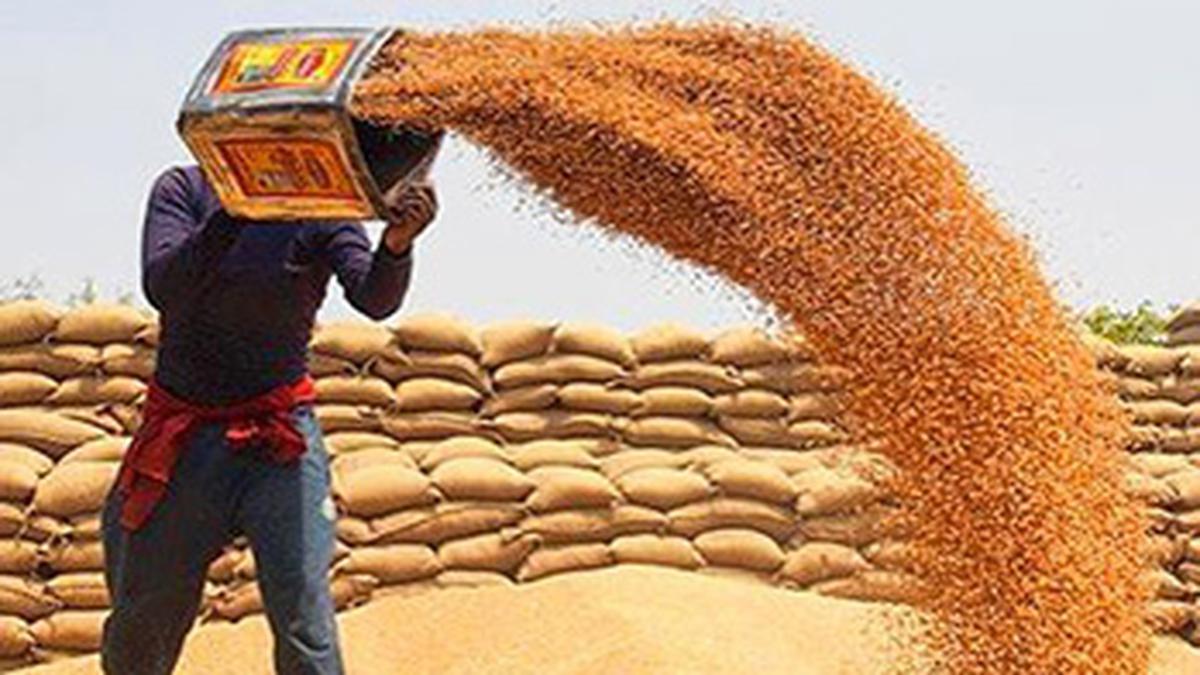Government imposes stock limits on wheat to prevent hoarding

A labourer piles up wheat grain at a Grain Market, in Gurugram. File Photo
| Photo Credit: PTI
In order to manage overall food security and to prevent hoarding and unscrupulous speculation, the government has decided to impose stock limits on wheat for traders, wholesalers, retailers, big chain retailers and processors. The order will be applicable with immediate effect and will be applicable until March 31, 2024.
Stock limits will be applicable for each entity individually such as: traders/wholesalers- 3000 tonne; Retailer- 10 tonne for each of the retail outlets; Big Chain Retailer- 10 tonne for each outlet and 3000 tonne at all their depots and Processors – 75 per cent of annual installed capacity.
“Respective legal entities, as above, have to declare the stocks position and update them regularly on the portal (https://evegoils.nic.in/wsp/login) of the Department of Food and Public Distribution and in case the stocks held by them are higher than the prescribed limit then they have to bring the same to the prescribed stock limits within 30 days of issue of this notification,” an official release said late on June 12, Monday.
Also read: Centre caps tur and urad dal stocks to prevent hoarding, speculation
Further, the centre has also decided to offload 15 lakh tonnes of wheat in the first phase from central pool stock under Open Market Sale Scheme to control retail prices of wheat.
Wheat will be sold in lot sizes of 10-100 tonnes. Registration for this auction is open on the FCI’s e-auction platform. It has also been decided to offload rice under the open market scheme in order to moderate the prices.
The quantity for the first phase of the e-auction for rice will be decided shortly.The imposition of stock limits on wheat along with offloading of wheat and rice are part of the consistent efforts made by the government to stabilize the prices of essential commodities.
“The Department of Food and Public Distribution is closely monitoring the stock position of wheat and rice to control the prices and ensure easy availability in the country,” the release added.
To manage the overall food security of the country as well as meet the needs of the neighbouring and other vulnerable countries amid the double whammy, India then amended the export policy of wheat by putting its export under the “prohibited” category, which is still in force.
Multiple rounds of heat waves in several wheat-growing regions in India before the rabi harvest last year affected crops. Wheat pods in the mature stage typically shrink if overexposed to heat.
This year too, there were reports from various key growing states that unseasonal rains have flattened standing crops in some regions. Wheat, a rabi crop was in an advanced maturing stage and was expected to hit mandis in a fortnight or so.
For all the latest business News Click Here

